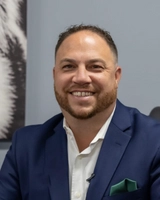What’s Some Good Media Relationship Advice?
To help you build strong and lasting media relationships, we’ve gathered advice from 15 PR professionals, including founders, CEOs, and community managers. From personalizing your communication to establishing credibility and expertise, these experts share their best tips for developing and maintaining successful connections with the media.
- Personalize Your Communication
- Understand Targets and Tailor Messages
- Offer Value to Media Professionals
- Respond Promptly and Stay Organized
- Establish Authentic Journalist Relationships
- Research, Personalize, and Provide Value
- Know Your Journalists Better
- Analyze Requirements then Tailor Your Approach
- Attend PR Society Meetings
- Focus on Mutual Benefits
- Engage Reporters on Social Media
- Follow the Three Golden Rules
- Be Concise and Authentic
- Balance Self-Promotion and Care
- Showcase Credibility and Expertise
Personalize Your Communication
I believe one of the most effective ways to develop and maintain media relationships is by personalizing the way you communicate.
It’s important to create personalized pitches and press releases for each individual or organization we try to reach out to. We try to reference examples from our previous work and demonstrate that we’ve done our homework by researching our clients.
 Nikola Baldikov
Nikola Baldikov
Founder, InBound Blogging LTD
Understand Targets and Tailor Messages
Doing this will give you a better idea of what type of stories they write or cover, as well as what kind of content they find most interesting or engaging. Knowing this before reaching out will also make it easier for you to personalize emails when the time comes—which I highly recommend. No one likes receiving standard template emails.
Before sending off any messages or pitches, take some time to reflect on who exactly it is that you’re trying to target—think about their audience size and demographics so that you can tailor your pitch accordingly. If possible, aim for one-on-one connections with journalists instead of mass email blasts; this shows more dedication towards creating a genuine connection with them from the get-go and is likely to be held in higher regard than emails sent en masse.
 Roksana Bielecka
Roksana Bielecka
Community Manager, ResumeHelp
Offer Value to Media Professionals
Developing and maintaining media relationships as a PR professional is crucial, and providing value is a key aspect of this process.
To build strong connections, research and understand the interests of media professionals, tailoring your pitches and story angles accordingly. Offer exclusive content, such as interviews, data, or expert insights, that are relevant and valuable to journalists. Be a reliable source by promptly responding to inquiries and providing additional information when needed. Foster two-way communication, engaging in meaningful conversations beyond pitching. Regularly share updates and express genuine gratitude for media coverage.
By consistently providing value, you establish yourself as a trusted resource, fostering long-lasting media relationships.
 Josh Amishav
Josh Amishav
Founder and CEO, Breachsense
Respond Promptly and Stay Organized
Respond quickly to inquiries and provide the information requested promptly. Journalists often have tight deadlines, so make sure you accommodate their timelines as much as possible. To make this easier, always keep up-to-date with media inquiries and stay organized.
 Ryan Hetrick
Ryan Hetrick
CEO, Epiphany Wellness
Establish Authentic Journalist Relationships
Build genuine connections with journalists by understanding their interests, beat, and preferences. Take the time to establish authentic relationships based on trust and mutual understanding.
By demonstrating genuine interest in their work and showing that you value their expertise, you can cultivate strong media relationships that are built on respect and collaboration. This approach can lead to more effective communication, increased media coverage, and a long-term partnership that benefits both parties.
 Ben Lau
Ben Lau
Founder, Featured SEO Company
Research, Personalize, and Provide Value
First, identify the media outlets that align with your industry, target audience, and communication goals. Understand the type of content they cover, their audience demographics, and the journalists or reporters who frequently contribute to those outlets.
Then, when reaching out to media professionals, personalize your communication. Address them by name and reference their previous work or recent articles that demonstrate your familiarity with their reporting. This shows that you’ve done your research and have a genuine interest in their work.
Finally, media professionals are constantly looking for interesting stories and valuable content to share with their audiences. Focus on creating and offering content that is newsworthy, informative, and relevant. This can include press releases, expert insights, data-driven reports, case studies, or exclusive interviews.
 Jason Moss
Jason Moss
President and Co-founder, Moss Technologies
Know Your Journalists Better
Journalists’ requirements are time-bound, so aside from acting fast and clearly communicating what we feel is of value to their readers, PR professionals should know their journalists better.
If you know they are covering a particular beat, monitor what they are specifically following so you can also find out what would apply to their readers and work on your pitch accordingly. Timing is also key, so it is important to remember their schedules—when they are out for coverage, closing a page, or submitting a story, and their days off, as well. This will give you a good lead on how to reach out appropriately to articulate your tips and story angles that would be fit for their columns.
Staying on point is a good start for a long-term collaboration and proves your strong support for the journalists, as well.
 Tristan Harris
Tristan Harris
Demand Generation Senior Marketing Manager, Thrive Agency
Analyze Requirements then Tailor Your Approach
I suggest fostering these relationships. First, establish trust. Our high-quality mobile apps and client satisfaction have earned praise and built media contacts.
Second, accessibility and responsiveness matter. I respond quickly to inquiries, interview requests, and information requests since the media industry is time-sensitive. Being available builds connections and ensures accurate and timely coverage.
Third, sharing knowledge is crucial. We engage media professionals with thought leadership pieces, expert opinions, and industry events to build trust and industry progress. Maintaining long-term partnerships is essential. TechAhead becomes a trusted industry partner by regularly engaging media professionals, analyzing their requirements, and personalizing content to them.
 Vikas Kaushik
Vikas Kaushik
CEO, TechAhead
Attend PR Society Meetings
You’d be surprised how many of them there are, and they tend to be a great way to meet and form contacts with communications and media professionals. I’d recommend finding a chapter of the Public Relations Society of America near you, or something in the same vein, and check out one of their recurring meetings.
There are a few better ways to make media contacts than meeting them at the source, so to speak, rather than pulling them in occasionally when you have a pitch.
 Dragos Badea
Dragos Badea
CEO, Yarooms
Focus on Mutual Benefits
Developing and maintaining media relationships require consistent and honest effort.
To cultivate genuine relationships with the press, look beyond your own interests and focus on providing value to reporters and their audiences. Understand their beats, interests, and preferred mediums, and tailor your messaging accordingly. Offer competitive exclusives and original insights, and always be prompt in answering inquiries. Look for ways to collaborate, such as providing experts or unique angles, that can help reporters succeed in their jobs.
Remember, media relationships should be based on mutual benefit, so approach them as long-term relationships rather than transactional interactions.
 Basana Saha
Basana Saha
Founder, KidsCareIdeas
Engage Reporters on Social Media
I’ve never run into a media professional that wasn’t absurdly active on Twitter at the very least.
If you’re looking for someone to cover stories in your industry, then finding relevant reporters and tagging them in relevant posts is a good way to start building a bit of a relationship—at least to show that you swim in similar circles and might be a good contact when working on a particular story angle. Follow reporters in your niche, like their content, and share their articles—it doesn’t go unnoticed if you’re diligent.
 Kate Kandefer
Kate Kandefer
CEO, SEOwind
Follow the Three Golden Rules
For making friends with reporters and maintaining a good working relationship, there are three golden rules I tend to follow.
- Respect and adhere to deadlines – ask about their deadlines upfront when making a pitch or doing an interview and do your best to stay on top of them to give the reporters a smooth and stress-free experience. It goes a long way.
- Follow up after an event – always send over a short but descriptive statement email after the event to stay fresh in their minds.
- Ask before you pitch – always ask first if they would be interested in covering a specific type of story before sending them a pitch.
 Onno Halsema
Onno Halsema
CEO, Contentoo
Be Concise and Authentic
Respect the media’s time and don’t over-pitch them. Keep your emails short and to the point, and provide quick answers when they reach out. When you reach out to a journalist or influencer, be authentic with your message.
This is key for building trust in any relationship. Take the time to understand what a journalist or influencer is looking for, and tailor your pitches accordingly. Offer them stories that apply to their beat, and provide extra information or resources if they need it.
 Darryl Stevens
Darryl Stevens
CEO, Digitech Web Design
Balance Self-Promotion and Care
Dial it down. Too many professionals are laser-focused on their own needs. Nobody thinks PR is altruistic, but if you genuinely care about the people you talk to, really listen, and truly try to provide value, things get a lot easier.
Think of your self-promotion in PR as a dial: maybe it shouldn’t be at 10%, but 100% isn’t good either. The truth is that if you only promote yourself at 60 or 70 percent, you often get nearly all the results of being more aggressive—but without alienating others along the way, and paradoxically, it often results in more benefits in the long run.
 David Berube
David Berube
President, Durable Programming
Showcase Credibility and Expertise
To develop and maintain media relationships, position yourself as an expert in your field. It’s an effective way to build trust, foster communication, and become the go-to source of information.
Establishing credibility with the media is essential, as journalists and reporters tend to trust professionals who demonstrate deep knowledge and expertise. Media practitioners see you as a valuable resource if you thoroughly understand your industry, trends, and relevant topics. Journalists often rely on experts to provide insights, quotes, and opinions for their articles or news stories. For example, you may be asked to share your unique perspective on a field-oriented topic.
Last but not least, media outlets often seek expert insights during crises or challenging situations to provide context and specialist analysis. PR professionals who position themselves as experts can become trusted sources for the media then, which helps to shape the narrative and manage the crisis effectively.
 Agata Szczepanek
Agata Szczepanek
Community Manager, MyPerfectResume
Submit Your Answer
Would you like to submit an alternate answer to the question, “PR Professionals, what”s your best advice for developing and maintaining media relationships?”
